NFT
Post-Bitcoin ETF VanEck Enters NFT Space With SegMint
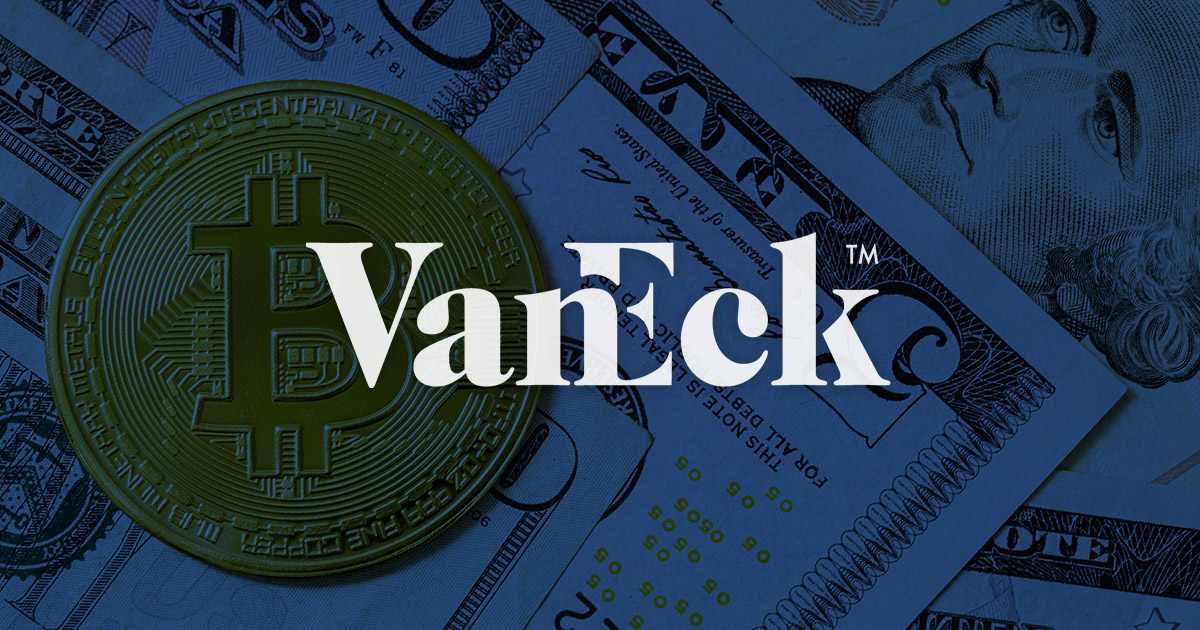
VanEck, a global investment manager, is entering the NFT space with the launch of its new platform, SegMint. The platform is created in partnership with tech firms like Nueva.Tech and Delegate.xyz is geared towards crypto-savvy users in Europe and Asia, specifically excluding those in the United States.
SegMint is not just another NFT marketplace; it’s a comprehensive digital asset platform. The idea stemmed from VanEck’s research into digital assets, aiming to make the exchange and storage of these assets both secure and accessible. The platform’s “Lock & Key Model” is analogous to a high-security vault that allows digital assets to be shared without risking security breaches.
SegMint: A Self-Custody Platform
SegMint stands out with a critical innovation: it simplifies sharing digital assets while maintaining self-custody. This approach tackles a major industry challenge—balancing secure and easy access. Matt Bartlett, SegMint’s founder, underscores the platform’s commitment to user-friendliness. At the same time, it ensures top-notch security. This user-centric design allows individuals to retain full control over their assets. With SegMint, sharing access doesn’t mean sacrificing security.
The platform’s intuitive interface breaks down the complexity of asset sharing. It enables straightforward management, offering users both confidence and convenience. Further, the platform also boasts a custom multi-signature wallet, NFT minting, and token-gated utilities, which VanEck is offering free of charge for the time being.
Also Read: NFT: Circle Partners PUBG Creator Krafton and Naver Z for “Overdare” NFT Game
In terms of community engagement, early users who go through the identity verification process on SegMint will be gifted an “Adventurer NFT.” These NFTs aren’t just collectibles; they’ll allow holders to participate in quests and receive additional perks.
Despite the broad potential applications, access to SegMint is selective, with specific restrictions for U.S. residents or citizens. Bartlett notes that interest is anticipated primarily from users in Europe and Asia, hinting at the regulatory complexities that often accompany the digital asset sector in the United States.
NFT Market Overview
As per Cryptoslam, the NFT market has witnessed significant fluctuations over the past year. Data indicates a remarkable sales peak early in the year, followed by a notable decline and subsequent stabilization. As of February 26, 2024, the market saw sales amounting to over $133 million USD.
Prominent collections such as Axie Infinity, Bored Ape Yacht Club, and CryptoPunks are leading the NFT space. Axie Infinity leads the market with over $4 billion in sales and 20 million transactions. Bored Ape Yacht Club trails with sales above $3 billion. Meanwhile, CryptoPunks approaches the $3 billion mark, cementing its status in the market.
The presented content may include the personal opinion of the author and is subject to market condition. Do your market research before investing in cryptocurrencies. The author or the publication does not hold any responsibility for your personal financial loss.
NFT
Pudgy Penguins Linked Abstract Chain Goes Live On Mainnet

In an astounding development, Abstract Chain, an Ethereum Layer-2 network launched by Pudgy Penguins’ parent company, Igloo Inc., has gone live on the mainnet. Reportedly, the Ethereum-based Layer 2 blockchain is designed to empower crypto communities and facilitate user-centric Web3 applications.
Despite Abstract Chain’s mainnet launch, Pudgy Penguins’ PENGU token has seen a massive decline. While the token’s descent aligns with the broader market trend, the community remains anxious about its further movements.
Igloo’s Abstract Chain Sees Mainnet Launch
Abstract Chain is now live on the mainnet, opening it up to the public for usage. According to a press release, Abstract Chain is now available for consumers, with the mission of driving mass crypto adoption. Developed by Igloo Inc., the parent company of the popular NFT collection, Pudgy Penguins, Abstract Chain focuses on providing a user-friendly experience.
On January 26, Pudgy Penguins CEO Luca Netz shared an X post announcing Abstract Chain’s mainnet launch. Netz proclaimed that the launch would take place on January 27, effective today.
MONDAY MAINNET ✳️🐧 https://t.co/Cp5naJdoB4
— Luca Netz 🐧✳️ (@LucaNetz) January 25, 2025
Commenting on the launch of Abstract, Netz stated,
The launch of Abstract is more than just a technical milestone—it’s a shift in how everyday users – and not just crypto natives – experience blockchain. We’ve built Abstract to strip away the complexities of crypto, offering an intuitive and enjoyable experience that empowers users to explore and create effortlessly.
Igloo Introduces the Consumer Blockchain Platform- The Portal
Meanwhile, the Abstract Blockchain unveiled The Portal, which the L2 network describes as the consumer blockchain platform. In a more intriguing description, the blockchain network calls The Portal a “Digital Theme Park of Fun” that revolutionizes the way billions interact with blockchain technology.
The Portal allows users to set up a wallet using just their email address, providing seamless access to a vast ecosystem featuring over 100 community-driven decentralized applications (dApps). The platform aligns with Abstract’s vision of merging the simplicity of Web2 with the transformative potential of Web3.
Abstract Chain’s Zero-Knowledge Rollups
Leveraging ZKsync’s ZK stack, Abstract Chain utilizes zero-knowledge rollups. Reportedly, it provides scalable and cost-effective on-chain solutions with reduced transaction fees.
In response to Abstract’s mainnet launch, ZKsync co-founder Alex Gluchowski cited,
For blockchain to reach the masses, we must abstract away the complexity. Users need to experience better apps, builders need to have more engaged users, and creators need to be rewarded for their efforts – while cutting out unnecessary middlemen. Abstract building for everyone, not just Web3 power-users, is the path to get the next billion onchain.
Pudgy Penguins’ PENGU Token Falls 11%
Echoing the broader market sentiment, Pudgy Penguins’ PENGU token dropped by more than 11% in a day despite Abstract Chain’s mainnet launch. Mainly triggered by China’s DeepSeek AI launch, the crypto market is bleeding today, with Bitcoin slipping below $99k.
As of press time, PENGU is exchanging hands at $0.2282, with a decrease of 4.5% over the last seven days. In a month, the token has seen a massive fall of 37%. However, PENGU’s 24-hour trading volume has seen a hike of 48%, currently at $376 million. PENGU token’s substantial decline follows its last month’s remarkable surge that earned a staggering 14,500x return for an investor. With an initial investment of just $6, the investor made a profit of $87K.
Disclaimer: The presented content may include the personal opinion of the author and is subject to market condition. Do your market research before investing in cryptocurrencies. The author or the publication does not hold any responsibility for your personal financial loss.
NFT
CyberKongz Receives Wells Notice from SEC, Vows to Fight for NFT Clarity

The NFT collection CyberKongz said the Securities and Exchange Commission (SEC) will likely charge it.
In a post on X on Monday, the collection said it received a Wells Notice, a letter from the SEC staff that recommends an enforcement action. It commented that the SEC is trying to pull through its laws before Joe Biden’s administration is over.
CyberKongz: “We Will Not Be Silenced”
In a statement, the NFT collection said it was disappointed with the approach of the SEC and vowed to stand up for and fight for greater clarity in the NFT space.
It also mentioned that the SEC raised concerns about its business with Genesis Kongz in April 2021, describing it as a “contract migration.”
It said:
CyberKongz added it intends to fight for clearer crypto regulation, particularly regarding NFT projects.
Eyeing Trump’s Crypto-Friendly Stance
The NFT collection has been vocal about the current administration, which it claims is anti-crypto in its approach. Just recently, as the US Senate Banking Committee was preparing to vote on SEC Commissioner Caroline Crenshaw’s renomination, lawyer Bill Hughes raised concerns about her stance on cryptocurrency regulation. Hughes argued that her renomination one could see as politically hostile to the crypto industry. This stands in contrast to the increasing support for crypto-friendly policies under the incoming administration.
CyberKongz is optimistic that the new administration will provide a more level playing field with a more just regulatory framework. In the meantime, the team comited to support all NFT projects on every blockchain platform.
In the past year, the SEC has acted against several cases related to NFTs. This includes lawsuits against podcast studio Impact Theory and Stoner Cats 2 LLC over unregistered NFT offerings that raised millions. The commission also doled out a Wells Notice to NFT marketplace OpenSea, signaling potential enforcement action.
It is up to wait and see how this enforcement will unfold in the transition of the commission’s leadership. The current SEC Chairman Gary Gensler announced his departure on January 20, in concert with the inauguration of President-elect Donald Trump. Trump has named former SEC Commissioner Paul Atkins, considered friendlier to the crypto industry, as the head of the SEC.
Disclaimer: The presented content may include the personal opinion of the author and is subject to market condition. Do your market research before investing in cryptocurrencies. The author or the publication does not hold any responsibility for your personal financial loss.
NFT
Unyted + Vesa

Unyted we (meta) stand
Many of the fancy metaverse projects take loooong to build and often require developers and budgets just to stay alive. In fact, one of my favorite ones had the whole company collapse around it in the build phase. I absolutely love what we’ve built with Superworld, for example, and what we’re about to release with Asvoria. Both of these require heavy machinery and rotation to come to life—and to be maintained.
Enter Unyted and my newest spatial Web3 space, which allows me to deliver fluent, up-to-date presentations on what’s happening now while also providing an overview of my entire career. I built it mostly by myself, with some guidance and glitch-fixing help from the team—special thanks to Tijana, Saskia, and Florian. I can update it in minutes to include a new project, presentation, or missing link. It’s freeing and necessary.
Unyted is at the forefront of spatial computing, offering innovative solutions that empower users to create, own, and monetize immersive 3D virtual environments. Their platform is designed to facilitate seamless transitions into the metaverse, providing tools for education, collaboration, and personalized digital experiences.
Link to join the metaverse
Link to join the X spaces.
Join us for a session with Ador, Bitcoin LIVE and others tomorrow 20.00 CET
Starting Thursday, we’ll kick things off with a joint presentation with Ador, and from there, we’ll host regular spaces that people can join visually. X is great for connecting with people, but for an artist, a lot is still missing from the full experience. Let’s see if we can bring these two innovations together in a sensible way.
 Watch the Tijana introduction to Unyted as well as my keynote held some time ago regarding web3, metaverse and creativity.
Watch the Tijana introduction to Unyted as well as my keynote held some time ago regarding web3, metaverse and creativity.
Delivering the Metaverse
They’re just starting out, and sure, sure there are a few glitches, but I’ve already given a couple of presentations that feel like a real departure from the world of Zoom. Nothing is ever perfect and getting going and constantly working on it is what keeps the thing alive.
It’s a step closer to delivering something of real value in the metaverse. People showed up to my first keynote in the space done together, they asked questions and then some were left to wonder around the space to explore it on their own. Promises kept. Those matter, after the last run.

I’ve been friends with Florian Krueger since the early blockchain days in London back in 2018, and we’ve collaborated on several projects. He remains one of my favorite people in the crypto space—always looking out for his people and tirelessly fighting for the ethical side of it. I was happy to hear he was starting a new venture and that I could also be a part of.
If you prefer the (virtual) city life?
Key Features of Unyted:
- Modular Environments: Unyted enables users to design and customize digital spaces, such as virtual homes, offices, or campuses, reflecting their unique vision. These environments can be monetized, allowing creators to generate revenue through their virtual properties.
- EdTech Solutions: The platform offers immersive educational experiences with features like AI-driven personalized learning paths, customizable avatars, and virtual classrooms. These tools aim to enhance student engagement and retention, providing scalable and cost-effective solutions for educational institutions.
- Data Protection and Security: Operating under EU regulations and compliant with GDPR, Unyted ensures top-tier data protection. Users maintain complete control over their personal and institutional data, upholding responsible practices in the metaverse.
- Sustainability Commitment: Unyted is dedicated to sustainability, calculating energy consumption and offsetting carbon emissions for each project. Through Unyted.World, users can stake tokens specifically for carbon offsetting, promoting environmental responsibility within the digital landscape.
In many ways what is important about the metaverse is our ability to pre-visualise the world we would like to live in, and then walk toward that direction.
Founded in 2022 by Gaby K. Slezák and Florian Krueger, Unyted envisions a decentralized, independent metaverse where users have equal access to a secure three-dimensional internet. Their mission is to empower individuals to shape their digital futures, fostering a community where creativity and collaboration thrive.
For those seeking to explore the metaverse, Unyted offers consulting services to guide organizations through VR, AR, blockchain, Web3, and Web4 technologies. Their seasoned team provides strategy insights and design expertise to craft unique digital experiences aligned with organizational visions.
Unyted stands as a visionary force in the evolving digital landscape, pioneering innovation while prioritizing user ownership, open collaboration, data protection, and sustainability.
Ador aka BitSavage will join us for the Monday talk in which we also dwell deeper into DAF – the Department of Artistic Freedom
Asvoria coming up soon!

 I’ll soon travel to Bulgaria to film some content in the Asvoria linked Hotel Satoshi Nakamoto, as well as guide the team on advances in our shiny updated metaverse space.
I’ll soon travel to Bulgaria to film some content in the Asvoria linked Hotel Satoshi Nakamoto, as well as guide the team on advances in our shiny updated metaverse space.
The art cars are also gearing up for their auction in Dubai in January, but more on that later.
See you Dec 5th 20.00 CET:
Link to join the metaverse
Link to join the X spaces.
Much to build,
VESA
Crypto Artist, Speaker, Consultant, Writer
All links to physical, NFTs, and more below

-

 Market18 hours ago
Market18 hours agoCan Pi Network Avoid a Similar Fate?
-
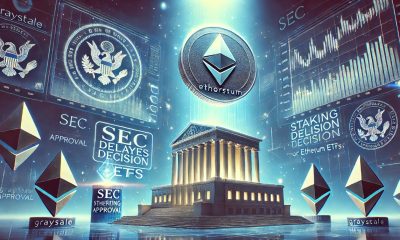
 Ethereum22 hours ago
Ethereum22 hours agoSEC Delays Decision On Staking For Grayscale’s Ethereum ETFs
-

 Market21 hours ago
Market21 hours agoXRP Price Could Regain Momentum—Is a Bullish Reversal in Sight?
-

 Market23 hours ago
Market23 hours agoTrump’s Tariffs Spark Search for Jerome Powell’s Successor
-

 Market20 hours ago
Market20 hours agoCardano Buyers Eye $0.70 as ADA Rallies 10%
-

 Altcoin13 hours ago
Altcoin13 hours agoWhispers Of Insider Selling As Mantra DAO Relocates Nearly $27 Million In OM To Binance
-

 Market17 hours ago
Market17 hours agoEthereum Price Consolidation Hints at Strength—Is a Move Higher Coming?
-

 Market16 hours ago
Market16 hours agoPi Network Price Rise To $1 is Now In The Hands Of Bitcoin


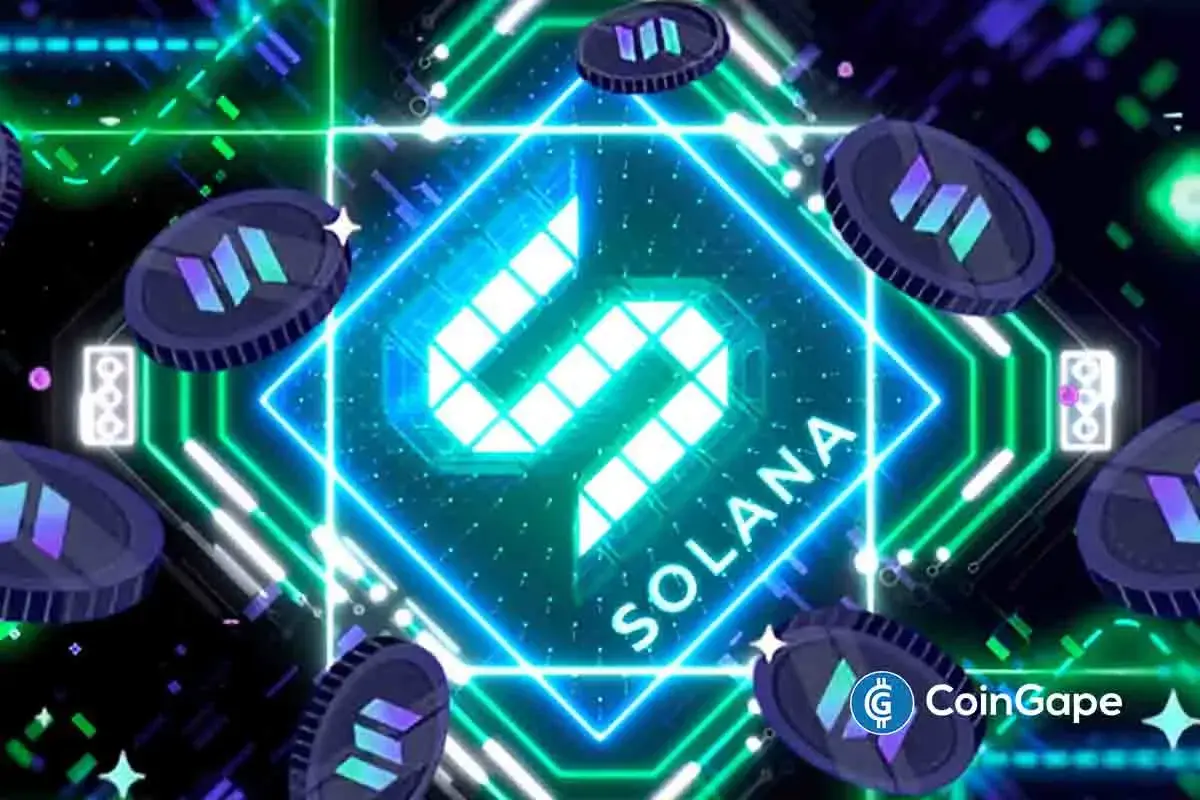


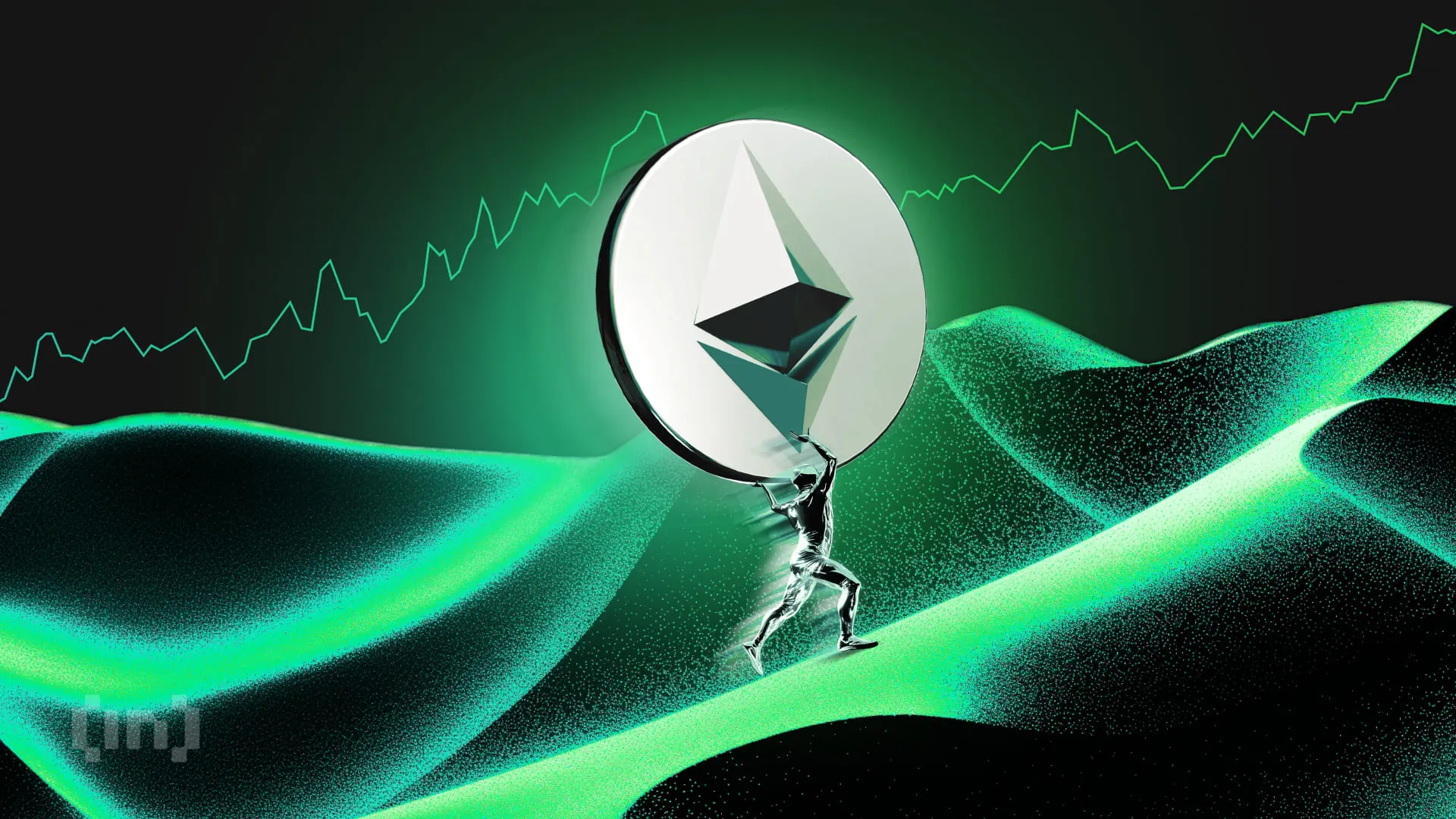


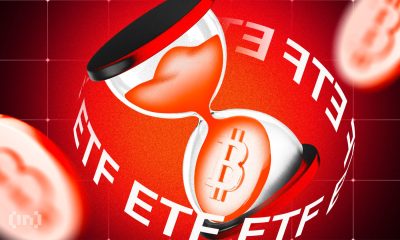





















✓ Share: